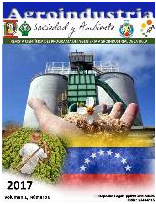INFLUENCIA DEL ÍNDICE DE MADUREZ EN LA CALIDAD DE LA PIÑA (Ananas comosus L. Merr) MÍNIMAMENTE PROCESADA.
Keywords:
maturity index, cv. Spanish Red, qualityAbstract
Minimally processed products are more perishable than those that are preserved fresh due to conditioning. In order to determine the quality of pineapple cv. ‘Red Spanish’, cut into slices as part of the minimum processing technology, the combination of maturity index and modified atmospheres (hermetic plastic bag and transparent polyethylene containers, blister pack) was proposed. They were immersed for 2min. In 2% citric acid solution and stored at 8 ° C ± 2 and ± 90% HR. The fruits were harvested at maturity indexes: start of color change from very dark green to yellow and then orange (D) and change from full color to orange and fully ripe fruit (E). The experimental design used was completely randomized 4 treatments and evaluations every 3 days, 5 replicates per treatment. Physicochemical analysis: loss of biomass (%), pH, total soluble solids SST (° Brix), titratable acidity (ATT) and vitamin C. When the interaction of factors was observed, there was a significant effect (P≤0.05) for pH, ATT and Vit. C; SST there were no differences. The maturity index influenced the ATT, showing values between 0,46 and 0,54%, where the D index presented the highest values; pH showed variations between 4,08 and 4,23; However, there were no differences between packages for both variables; And vitamin C presented a higher level when the packaging used was blister and D maturity index with 8,21mg / 100g. In general, the quality of the fruits processed in maturity index D and blister preserved the quality of the product.
Downloads
Published
How to Cite
Issue
Section
Copyright (c) 2021 Yajaira Godoy , Belinda Rojas S. , Ma. E Pérez de Camacaro , Aracelis Giménez , Deysi Petit-Jiménez , Geine P. Alvarado Q.

This work is licensed under a Creative Commons Attribution-NonCommercial-ShareAlike 4.0 International License.




